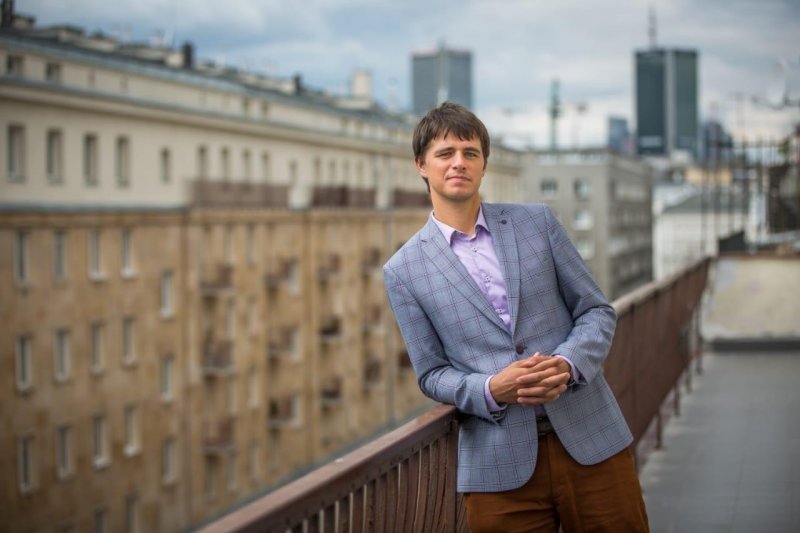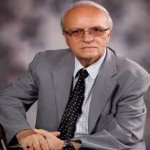Russian Invasion of Ukraine, a View from Warsaw
“There's no panic in Poland. The prevailing atmosphere is solidarity with Ukraine and assertive policy towards Russia. Having such a long history of being a neighbor of Russia and especially being aware of the very aggressive policy of Moscow during the last decade (with undertaken interventions in Georgia, Ukraine, Libya, Syria or Mali), we cannot be shocked. The people are quite united and the internal disputes have been muted,” has said the Head of Central European Department at the Centre for Eastern Studies (OSW), Konrad Poplawski, PhD, in an exclusive interview with Albanian Daily News.
According to him, the American intelligence has done a great job in ‘reading’ Russian intentions, but all the Western experts failed to identify that the Russian army was in such a bad state and that the Ukrainian nation was so brave and determined in its resistance.
Asked about the visit of the US President, Joe Biden to Warsaw on March 25, 2022, the senior Polish political researcher said the most important message that the people of Poland wanted to hear from him was voiced: NATO treats its commitments with the utmost importance and is ready to strongly resist any attempts of intrusion in the Alliance's territory. "We perceive it as a symbol that President Biden has enough political will to do whatever it takes to defend the allies. It is also important that he used quite harsh language as (Russian President Vladimir) Putin understands only such messages."
The Polish political researcher was of the opinion that unfortunately, dramatic German miscalculations about Russia and the energy partnership of both countries paved the way for modernization of the Russian army. “It's good that Germany is reviewing its mistakes by making some declarations about U-turns in the energy and security policy, but right now we need more deeds than words.”
Answering the questions if Putin might use nuclear weapons in case events do not unfold as he thought, the Polish political researcher said: “It cannot be ruled out. Therefore it is important to have in mind that such aggressive crossing of lines of the civilized world by Russia is a danger not for Ukraine or Poland, but for the whole of Europe. We know that Ukraine is not Putin's ultimate goal as his true dream is to make NATO collapse and revive the Russian empire.”
Mr. Poplawski hoped that the unprecedented economic sanctions inflicted on Russia and the unity of the West in its reactions to the Russian aggression, are an important deterrent for countries wishing to follow the Russian path. “I don't believe that Serbia, which has so deep political, economic and cultural relations with the West, would be interested in such a scenario. Generally I hope that seeing these pictures from Ukraine that not so long ago constituted the reality of the Balkans, is rather a discouragement for even trouble-making politicians to bring back such violence to the region,” the Head of Central European Department at the Centre for Eastern Studies (OSW), Konrad Poplawski, PhD, said in the following interview:
Albanian Daily News:What has been the fear since long with Warsaw raising insistently the alarm of the threat of Russia’s expansionist policy in the region is a reality: WAR! Mr. Poplawski, what could you say about the current atmosphere in the different circles of Polish society as the noise of the guns can be heard in your country’s territory? Are the people united in support of the government for its current stance towards the war?
-Head of Central European Department (OSW) Konrad Poplawski, PhD: There's no panic in Poland. The prevailing atmosphere is solidarity with Ukraine and assertive policy towards Russia. Having such a long history of being a neighbor of Russia and especially being aware of Moscow’s very aggressive policy of the last decade (with undertaken interventions in Georgia, Ukraine, Libya, Syria or Mali), we cannot be shocked. The people are quite united and the internal disputes have been muted in the country. There is strong conviction that we need to focus on assisting Ukraine with all possible means and help the Ukrainian refugees in the best way to resist Russia at this stage.
- As the Russian aggression continues against Ukraine and it’s almost a month of a horrible tragedy against people and unimaginable massive destruction of a peaceful country, do you think that diplomacy and intelligence services in Kiev but also those of the US and Brussels predicted such a course of the war?
- The American intelligence did a great job in reading Russian intentions, but all the Western experts failed to identify that on one hand the Russian army was in such a bad state and on the other the Ukrainian nation was so brave and determined in its resistance. However, the chaotic organization of the Russian invaders doesn't mean that the problem is less urgent.
It can be seen that the helpless Russian army is even worse as it has started to use barbaric methods which are so rooted in the Russian tradition. They are ruining cities brick by brick, killing civilians, no respect for the lives of individuals and property. That has also been our experience of having Russia as a neighbor.
- After meetings in Brussels with NATO allies, G7 and EU leaders, President Biden visited Poland on March 25, which hosts the bulk of Ukrainian refugees fleeing war, but, on the other hand, is one of the neighboring countries of Russia whose relations have historically been burdened with conflicts. What is the message of such a visit to Polish people and politicians at these difficult times when everything can happen?
- The most important message that we wanted to hear and was voiced is that NATO treats its commitments with the utmost importance and is ready to strongly resist any attempts of intrusion in the Alliance's territory. We perceive it as a symbol that President Biden has enough political will to do whatever it takes to defend the allies. It's also important that he used quite harsh language as Putin understands only such messages.
- All wish for the war to stop opening the way to establishment of peace, but no one can say for sure that is the end of Putin’s scheme. Does Poland fear eventual armed provocations by Russia and in your view which would be the reaction of its allies in NATO and the EU?
- The reactions undertaken by NATO have reaffirmed our trust that the Alliance finally has accepted our perception of risk and we see that even the most hesitant allies noted that the Russian threat is real. Such strong messages are very important as a weak response of NATO could provoke Putin to use weapons of mass destruction in Ukraine. And in that way he would cross the line leading to the next world war.
- As a long-term analyst of Germany, how do you assess the dynamics of the stance of Germany under the new Chancellor towards the Russian aggression against Ukraine? Is this case evidence of a differentiated approach showing that national interests stand above those of the Union some time? Maybe it might seem irrelevant but we witnessed a lack of concerted approach of European allies, all closed up in their ‘yards’ in the first stages of the outbreak of the deadly pandemic in 2020 which was considered a ‘war’.
- Unfortunately, dramatic German miscalculations about Russia and the energy partnership of both countries paved the way for modernization of the Russian army. It's good that Germany is reviewing its mistakes by making some declarations about U-turns in the energy and security policy, but right now we need more deeds than words.
We need more military strength now and not in a few years. We need the ultimate resignation of Nord Stream 2 now and not a wait-and-see approach. Finally, we need a more modest Germany, which means not a Germany that’s talking about being the EU leader, but Germany taking seriously the strengthening of the EU and not strengthening some security threats.
In the context of the Western Balkans there is also an important lesson that the EU has been too much focused on itself, neglecting its responsibility towards neighbors and future candidates.
- Given that both countries are EU members but also have very close ties, how does Poland feel in face of the stance of Germany in particular, but also of some other countries which have, in my view, framed the line under the motto that NATO involvement in Ukraine is ruled out?
- Better late than never, but hopefully it won’t be too late. We are satisfied with convincing the German elites to get aware of what security environment we are living in slowly during many years. We just hope that this time Germany means it for real and the policies of energy diversification and Bundeswehr modernization will be decisively realized and they won’t get stuck in bureaucratic procedures. In the case of energy diversification Germany just needs to follow the Polish way. After 10 years of efforts Poland will be ready to resign from Russian gas this year.
- Let me be straightforward, Mr. Poplawski, does it come across your mind that Putin might use nuclear weapons if things do not unfold as he thought, and what might be the impact worldwide?
- It cannot be ruled out. Therefore it is important to have in mind that such aggressive crossing of lines of the civilized world by Russia is a danger not for Ukraine or Poland, but for the whole of Europe. We know that Ukraine is not Putin's ultimate goal as his true dream is to make NATO collapse and revive the Russian empire.
- To conclude, let me touch upon the Western Balkans. Although there have been frequent warnings towards Brussels not to create vacuums in the Western Balkans, the enlargement policy towards it, a sensitive troubled part of Europe, has remained more propaganda than action. Given the unfolding geostrategic developments with many unknowns, which is your opinion on this delay, and are there risks of escalation of influence and intervention of Russia, a close ally of Serbia?
- I hope that the unprecedented economic sanctions inflicted on Russia and the unity of the West in its reactions to the Russian aggression, are an important deterrent for countries wishing to follow the Russian path.
I don't believe that Serbia, which has so deep political, economic and cultural relations with the West, would be interested in such a scenario. Generally I hope that seeing these pictures from Ukraine that not so long ago constituted the reality of the Balkans, is rather a discouragement for even trouble-making politicians to bring back such violence to the region.
I would rather expect that this sad fate of Ukraine would make, if not politicians, their electorate remember to respect peace. / ADN














